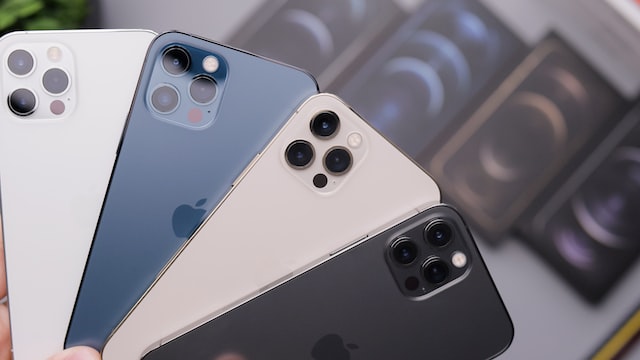Apple Will Provide a Minimum of Five Years of iPhone Security Updates

Apple has announced a new policy commitment to provide a minimum of five years of security updates for iPhones. The move aims to enhance device longevity, improve user security, and set a new standard in the smartphone industry. In this comprehensive article, we explore the details of this policy, and its implications for users and the industry. We will also cover the broader context of software support in the smartphone market.
Details of the Policy
Apple’s new policy guarantees that iPhones will receive security updates for at least five years from the date of their initial release. Here are the key aspects of this policy:
- Security Focus: The updates primarily focus on security patches and bug fixes to protect users against vulnerabilities and exploits.
- Broader Device Support: This policy applies to all iPhone models, ensuring that even older devices remain secure for an extended period.
- Update Frequency: Apple will continue to release these security updates regularly, addressing new threats as they emerge.
- Extended Support Beyond Five Years: In the same fashion that the commitment is for a minimum of five years, Apple may extend support beyond this period for certain devices based on demand and technological feasibility.
Reasons Behind the Policy
Several factors have driven Apple to implement this policy:
- User Security: With cyber threats constantly evolving, ensuring that users’ devices remain secure is paramount. Extended security updates help protect users from malware, phishing attacks, and other cybersecurity risks.
- Device Longevity: By guaranteeing security updates for five years, Apple encourages users to keep their devices longer, promoting sustainability and reducing electronic waste.
- Customer Trust and Loyalty: Providing long-term support builds customer trust and loyalty, as users feel confident that their devices will remain secure and functional for many years.
- Industry Leadership: Apple aims to set a new standard in the smartphone industry, where software support often varies widely among manufacturers.
Implications for Users
The new policy has several important implications for iPhone users:
- Enhanced Security: Users can be assured that their devices will receive timely security patches, protecting them from the latest threats and vulnerabilities.
- Increased Device Longevity: With guaranteed updates, users can confidently use their iPhones for longer periods, knowing they will remain secure and up-to-date.
- Cost Savings: Extended support reduces the need for frequent device upgrades, allowing users to save money by keeping their devices longer.
- Environmental Impact: Encouraging longer device lifespans helps reduce electronic waste and supports environmental sustainability efforts.
Broader Implications for the Industry
Apple’s commitment to providing a minimum of five years of security updates could have broader implications for the smartphone industry:
- Raising the Bar: Apple’s policy sets a high standard for other smartphone manufacturers, potentially pressuring them to offer similar or better support.
- Consumer Expectations: As users become more aware of the importance of long-term software support, they may demand similar commitments from other manufacturers.
- Competitive Advantage: Apple’s policy could give it a competitive edge, attracting security-conscious consumers who prioritize long-term device support.
- Regulatory Influence: Policymakers and regulators may take note of Apple’s initiative, leading to potential regulations that require longer software support periods across the industry.
Challenges and Considerations
While the new policy is largely beneficial, there are some challenges and considerations:
- Technical Limitations: As devices age, hardware limitations may prevent the implementation of some newer security features, even if software updates are provided.
- Update Adoption: Ensuring that users actually install these updates is crucial. Apple may need to enhance its efforts to encourage users to keep their devices updated.
- Resource Allocation: Supporting older devices for a longer period requires significant resources, which could impact Apple’s ability to innovate and develop new features.
Historical Context and Comparison
To understand the significance of Apple’s new policy, it’s helpful to compare it with the broader industry practices:
- Android Devices: Historically, Android devices have had varied support periods, with many manufacturers offering only two to three years of updates. Google’s Pixel line has set a higher standard, but overall, the industry lags behind Apple’s new commitment.
- Previous Apple Policies: Apple has traditionally provided robust software support compared to other manufacturers, with many older devices receiving updates for several years. This new policy formalizes and extends that commitment.
- Other Tech Sectors: In the broader tech industry, long-term support varies. For instance, enterprise software often has extended support periods, while consumer electronics may have shorter cycles. Apple’s policy aligns more closely with enterprise standards.
Conclusion
Apple’s commitment to providing a minimum of five years of security updates for iPhones marks a significant step forward in the smartphone industry. This policy enhances user security, promotes device longevity, and sets a new standard for other manufacturers to follow. While there are challenges to be addressed, the overall impact on users and the industry is overwhelmingly positive. As Apple continues to lead in this area, it encourages a broader shift towards more sustainable and secure technology practices.




